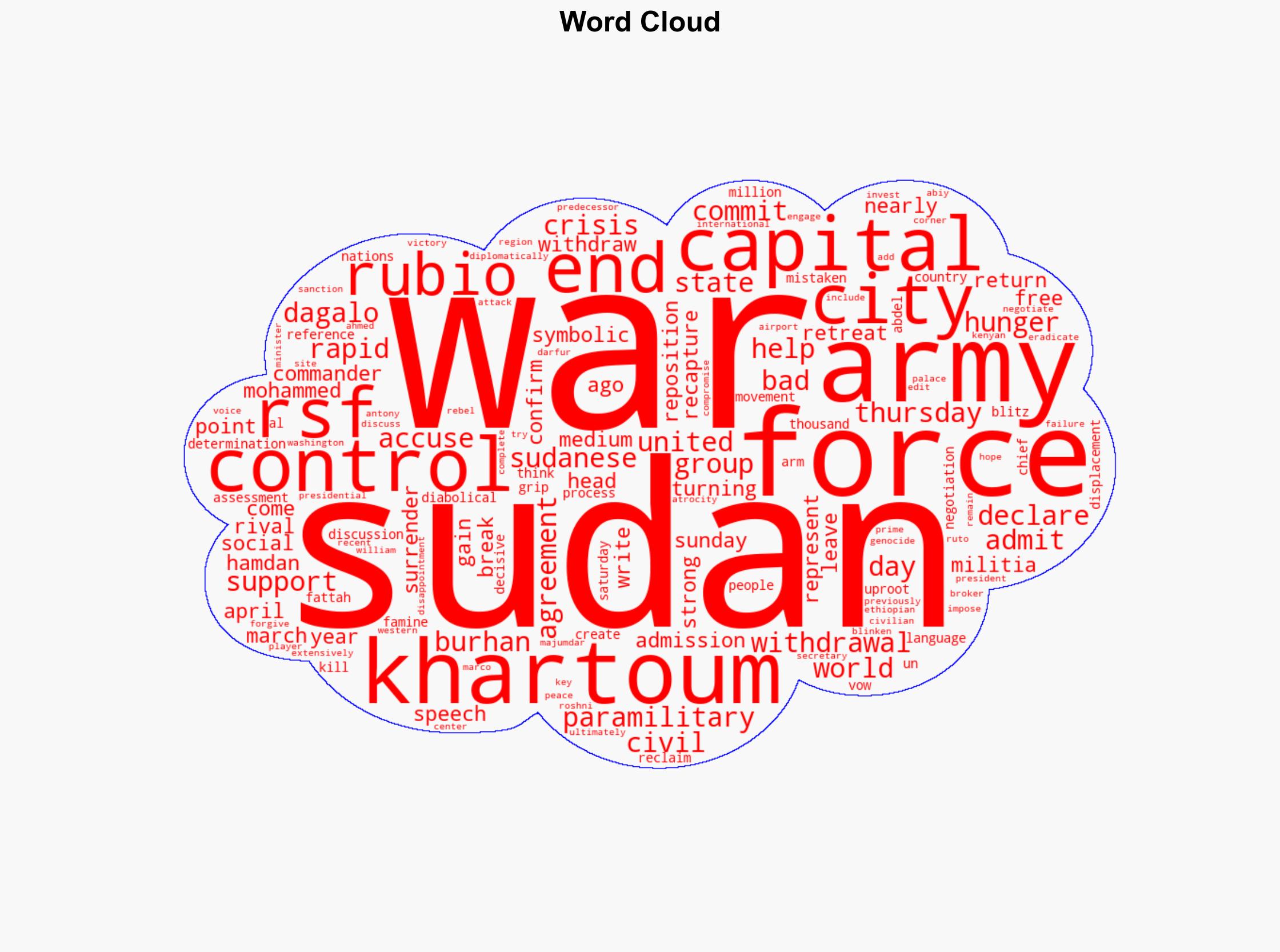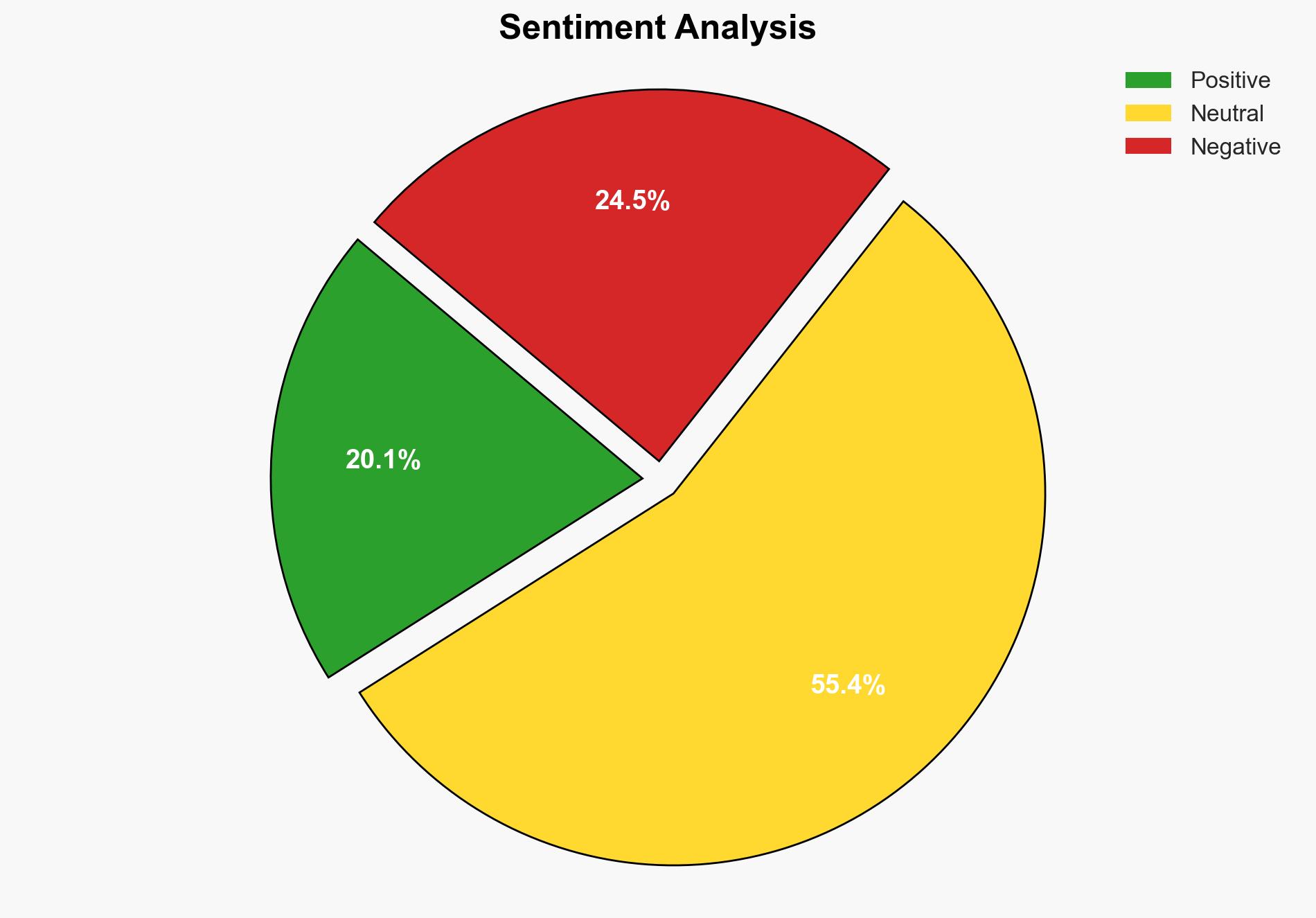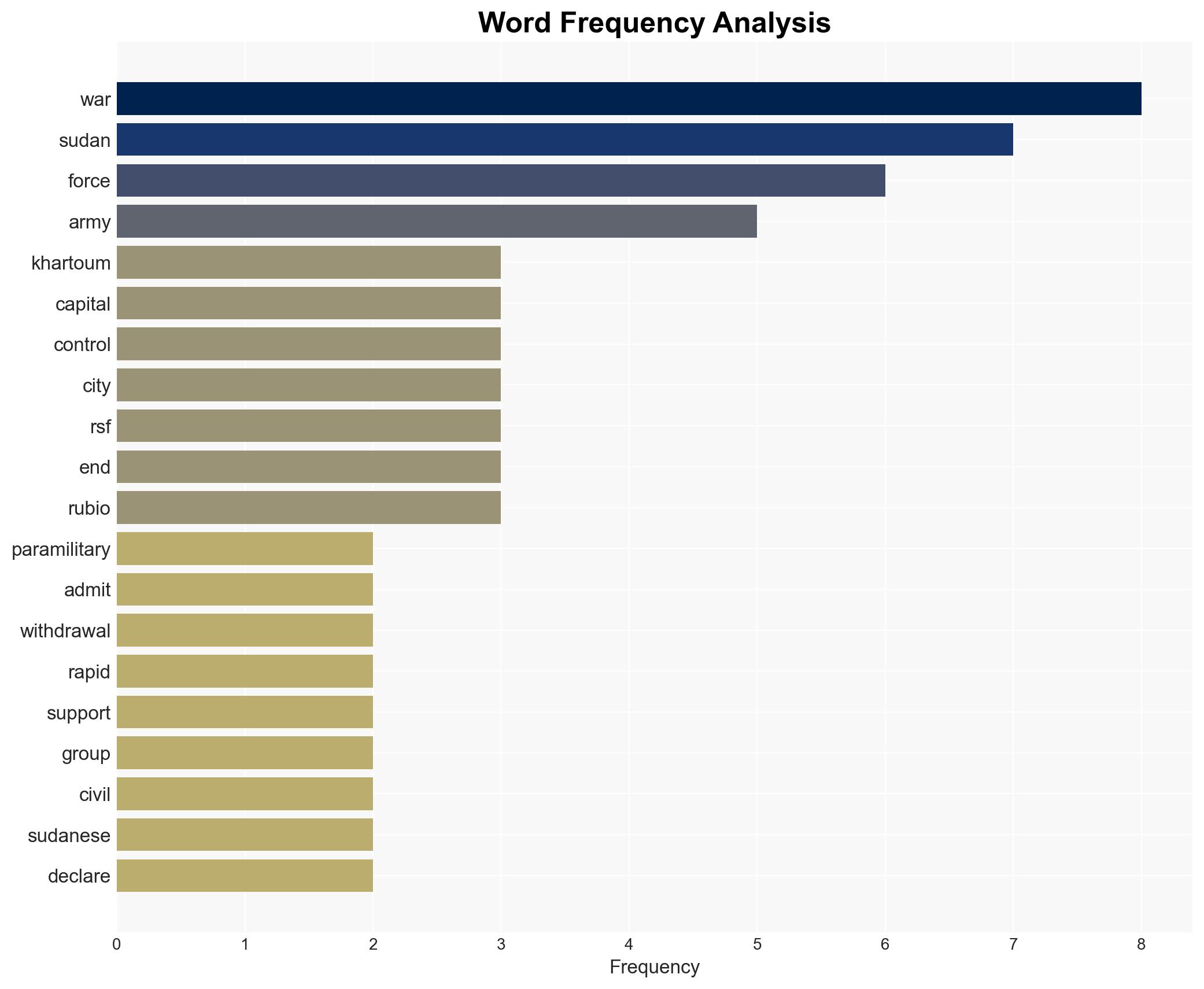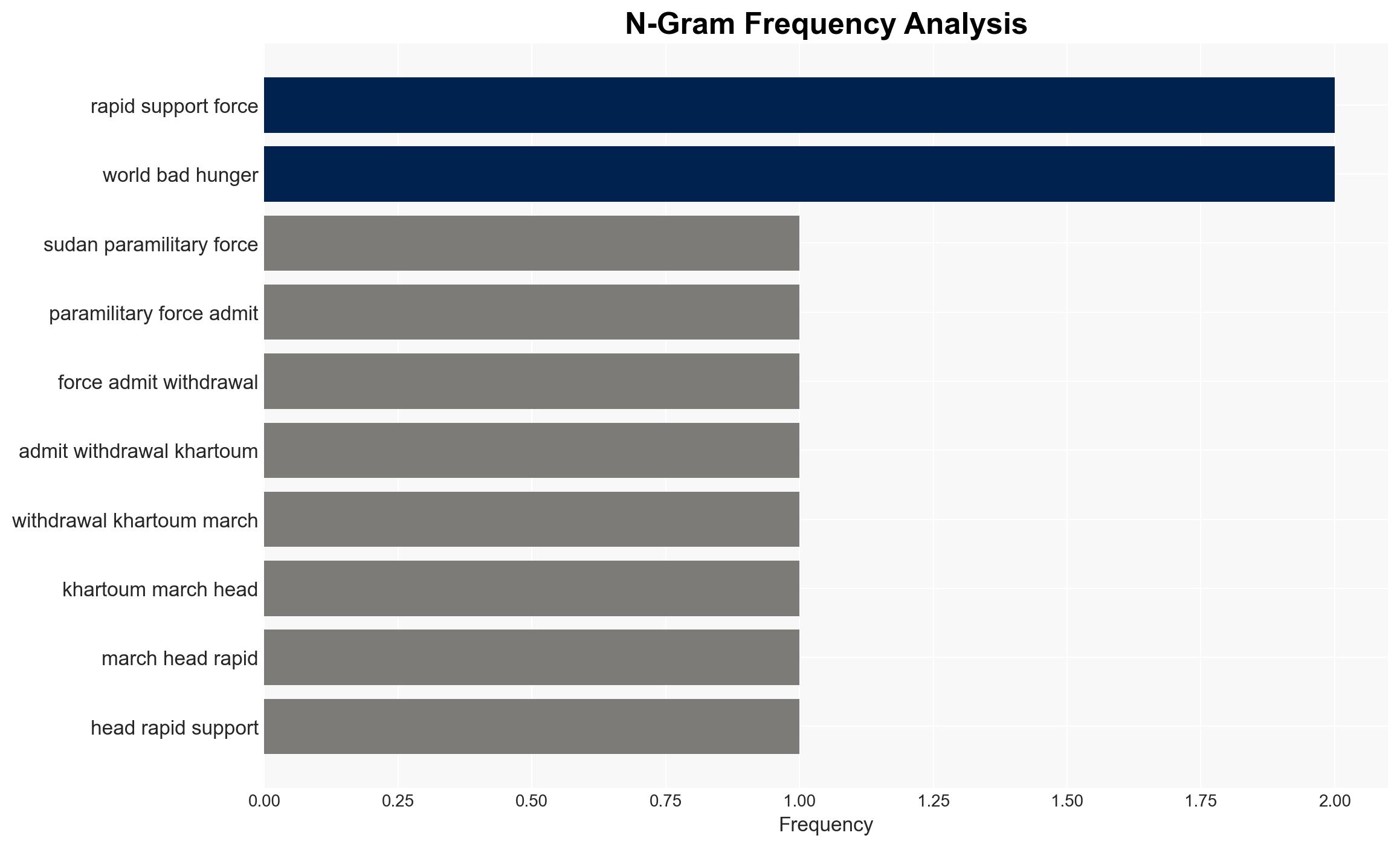Sudan’s paramilitary forces admit withdrawal from Khartoum – DW (English)
Published on: 2025-03-30
Intelligence Report: Sudan’s paramilitary forces admit withdrawal from Khartoum – DW (English)
1. BLUF (Bottom Line Up Front)
The Rapid Support Forces (RSF) have admitted to withdrawing from Khartoum, marking a significant shift in the ongoing civil conflict in Sudan. This development follows the Sudanese army’s declaration of the capital being free from militia control. The withdrawal is seen as a potential turning point in the conflict, with implications for future negotiations and peace efforts. Immediate attention is required to address the humanitarian crisis exacerbated by the conflict.
2. Detailed Analysis
The following structured analytic techniques have been applied for this analysis:
General Analysis
The RSF’s withdrawal from Khartoum, as confirmed by Mohammed Hamdan Dagalo, suggests a strategic repositioning rather than a complete surrender. The Sudanese army, led by Abdel Fattah al Burhan, has vowed to reclaim key sites in the capital, indicating ongoing military engagements. The conflict has resulted in significant humanitarian challenges, with the United Nations highlighting severe hunger and displacement crises. International diplomatic efforts, including those by Marco Rubio, William Ruto, Abiy Ahmed, and Antony Blinken, have so far failed to broker peace, with accusations of atrocities and sanctions being imposed.
3. Implications and Strategic Risks
The withdrawal of RSF forces from Khartoum presents both opportunities and risks. The potential for negotiations increases, but the risk of further military escalation remains high. The humanitarian crisis poses a significant threat to regional stability, with millions displaced and thousands killed. The economic impact on Sudan and neighboring countries could be profound, exacerbating existing vulnerabilities and potentially leading to broader regional instability.
4. Recommendations and Outlook
Recommendations:
- Encourage diplomatic engagement with all parties to facilitate a ceasefire and initiate peace talks.
- Increase humanitarian aid and support to address the immediate needs of displaced populations.
- Implement targeted sanctions to pressure parties involved in committing atrocities.
Outlook:
Best-case scenario: Successful negotiations lead to a ceasefire and a roadmap for peace, reducing humanitarian suffering and stabilizing the region.
Worst-case scenario: Continued military engagements result in further civilian casualties and displacement, exacerbating the humanitarian crisis and destabilizing neighboring countries.
Most likely scenario: Protracted conflict with intermittent negotiations, leading to a gradual reduction in hostilities but ongoing humanitarian challenges.
5. Key Individuals and Entities
The report mentions significant individuals such as Mohammed Hamdan Dagalo, Abdel Fattah al Burhan, Marco Rubio, William Ruto, Abiy Ahmed, and Antony Blinken. These individuals play crucial roles in the ongoing conflict and diplomatic efforts.





